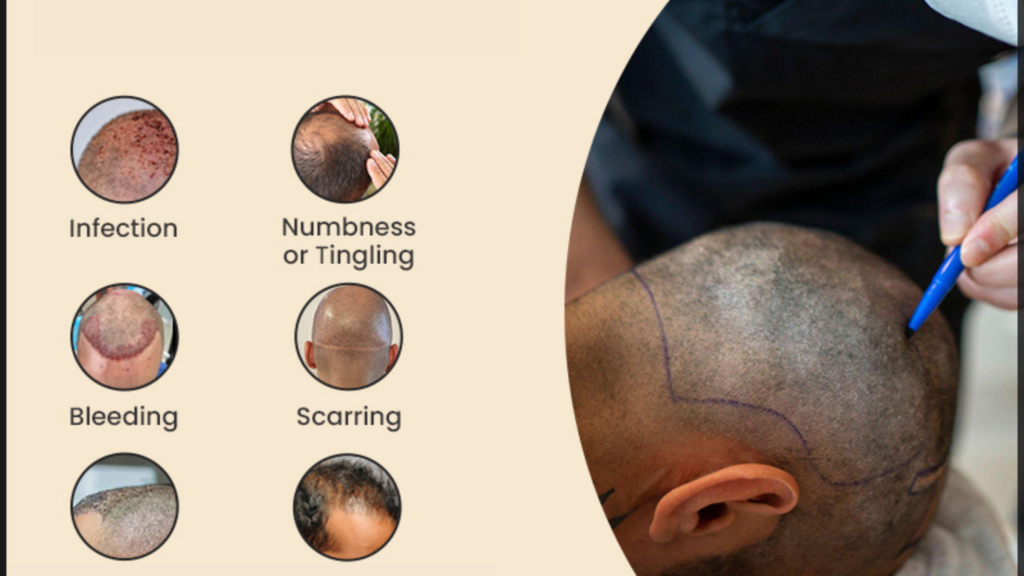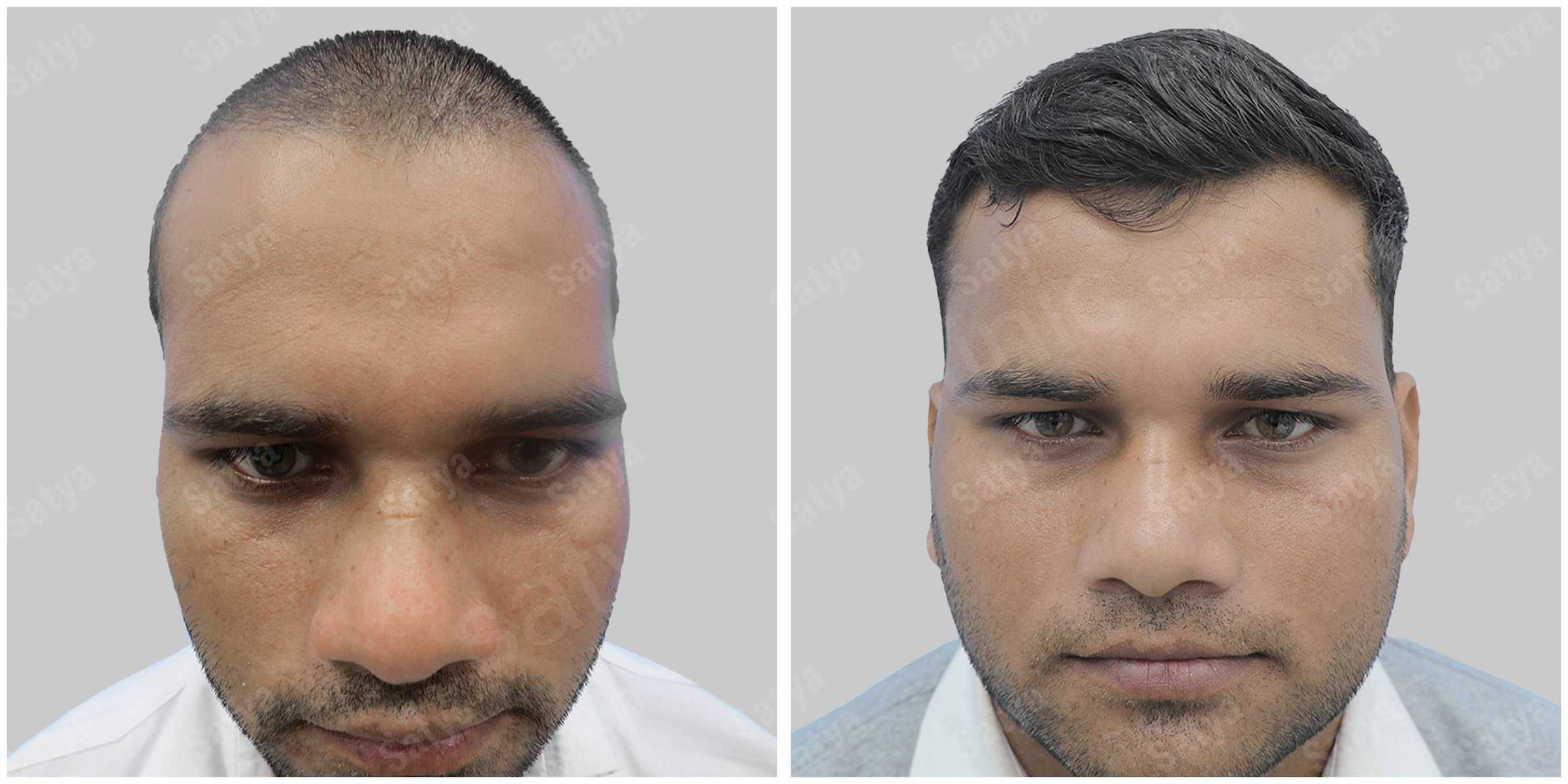Hair transplant surgery has become an increasingly popular treatment for patients suffering from hair loss, offering a chance to restore hair density and improve their appearance. Hair transplants, like any other medical operation, include the possibility of problems. The best hair transplant in Gurgaon offers patients high-quality care. However, being aware of potential risks and how to avoid them is essential for anyone considering hair transplant surgery.
Common complications of hair transplant surgery include

Infection
Infections are rare because of the sterile methods utilized during the procedure, although they do occur. Symptoms at the transplant site may include redness, swelling, pain, or discharge.
Bleeding
Some bleeding is expected during and immediately after the treatment, but excessive bleeding might be an issue that necessitates additional medical attention.
Scarring
Hair transplant surgery, especially follicular unit transplantation (FUT), can result in linear scars in the donor area. Follicular Unit Extraction (FUE) may leave little, dot-like scars.
Graft Failure
Not all transplanted hair grafts survive the transplant process. Graft failure may cause less dense hair growth than planned.
Shock Loss
Due to the shock of surgery, both transplanted and surrounding hair suffer temporary hair loss, which usually heals within a few months.
Folliculitis
Folliculitis, or inflammation or infection of the hair follicles, can develop after a transplant, resulting in red, swollen pimples on the scalp.
Numbness or lack of sensation
Temporary numbness around donor or transplant sites is typical, but it usually goes completely away within a few months.
How to Reduce Hair Transplant Complications

Choose the right specialist.
The significance of choosing a trained and experienced hair transplant doctor must be discussed. Make sure you’re speaking with the best dermatologist in Gurgaon or a hair transplant surgeon with a track record of successful operations. Experienced specialists minimize hazards by utilizing cutting-edge procedures and sticking to the highest levels of care.
Follow the pre- and post-operative instructions.
Following your surgeon’s pre- and postoperative instructions is crucial. This could include advice for medicine use, alcohol intake, smoking, and hair care before and after the surgery. Proper treatment can greatly lower the chance of issues.
Maintain a sterile surgical environment.
Infections can be avoided by having the hair transplant performed in a sterile surgical environment. Reputable hair transplant clinic in Gurgaon stress patient safety by following stringent hygiene and sterilization procedures.
Discuss your medical history.
Be truthful with your surgeon about your medical history, including any medications you’re taking and any underlying health concerns. This information can be used by your surgeon to customize the surgery and reduce risks.
Postoperative Care
Follow all post-operative care recommendations precisely. This may contain instructions for washing your hair, dealing with swelling, and when to return for follow-up meetings. Proper care can enhance recovery while lowering the risk of problems.
Check for signs of complications.
Keep an eye out for indicators of problems, such as extreme discomfort, excessive swelling, or infection. Early detection and treatment can help prevent more serious problems.
Manage your expectations.
Understand that hair transplantation does not produce rapid effects. Hair growth from transplanted follicles usually occurs a few months following the treatment. Patience and realistic expectations can help avoid disappointment and excessive pressure at transplant locations.
Conclusion
Hair transplant surgery is a promising treatment for hair loss, but it is critical to understand the risks and how to avoid them. By selecting an approved specialist in Gurgaon, following all medical recommendations, and taking necessary care before and after the treatment, you can increase your chances of a successful outcome while reducing risk. Remember that the purpose of hair transplant surgery is to improve your appearance while also ensuring your general health and safety throughout the procedure.
Book an appointment
Consultation

Repair

Blog

Galleries









